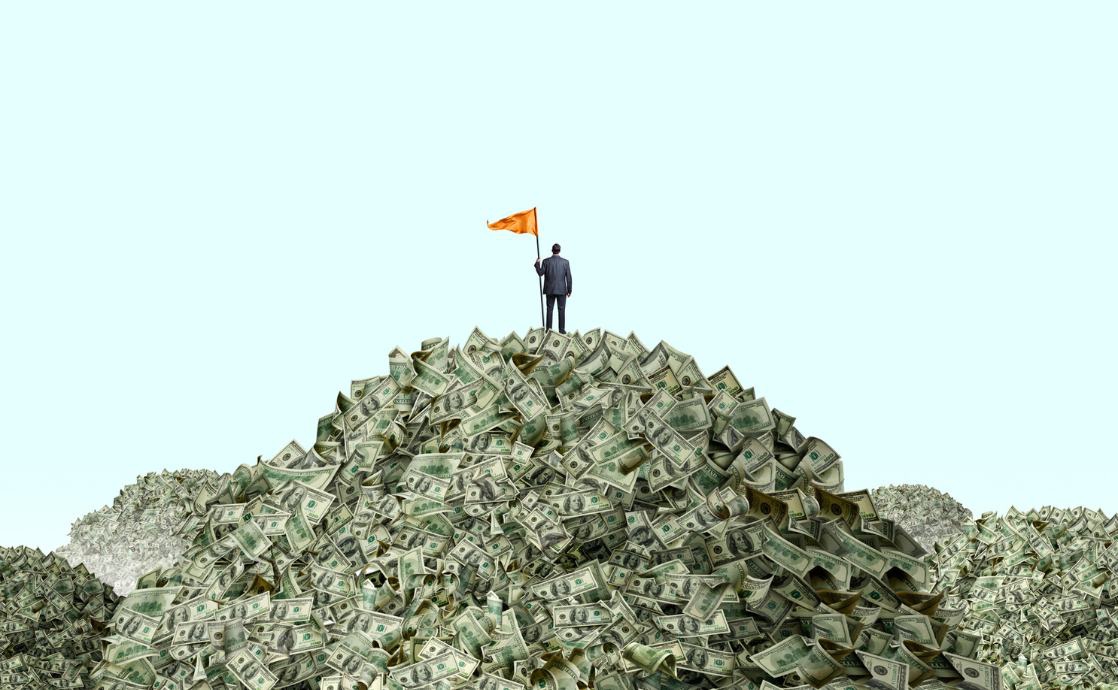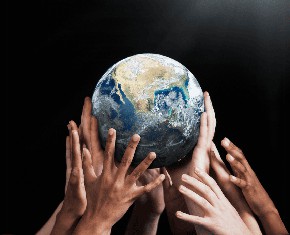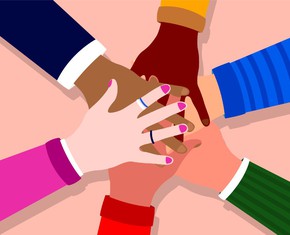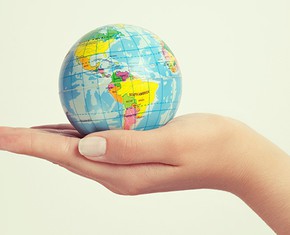The views expressed in our content reflect individual perspectives and do not represent the authoritative views of the Baha'i Faith.
The Baha’i concept of economics asks humanity to eliminate the extremes of wealth and poverty. For more than 40 years, I have studied that concept, and thought I had some general ideas about it.
Recently, though, I realized how I’ve often failed to connect Abdu’l-Baha’s examples in his daily life to the whole idea of the distribution of wealth. Since Abdu’l-Baha is the exemplar of how to lead a Baha’i life, I’m fascinated by his legendary generosity and service to humanity, but I missed seeing the connections he made between charity and the distribution of wealth.
RELATED: Reducing Poverty Amongst Marginalized Women and Communities
I have observed, with great amazement, how the spiritual teachings of the Faith suggest solutions to the economic problems that have baffled economists. I’ve noticed, too, that the Baha’i writings related to the distribution of wealth are designed to eliminate global poverty. The more I’ve studied, the more impressed I’ve become with the wisdom of those God-given solutions offered by Abdu’l-Baha through his examples, writings, and talks.
Let’s begin here: the distribution of wealth is one of the primary functions of any economic system. From every indication, the present economic system in much of the world has failed to distribute wealth justly and equitably. This fact – clearly evident from an ever-widening gap between the rich and the poor – means that billions of people live below the poverty line, while multi-billionaires accumulate more enormous wealth every day.
From an economic point of view, it’s clear that this system has failed to deliver and fairly distribute wealth. The question is why. The Baha’i writings explain that one of the main reasons is the lack of spirituality and morality in the economic system. Abdu’l-Baha said: “The secrets of the whole economic question are Divine in nature, and are concerned with the world of the heart and spirit.”
In this short essay, I’ll briefly share my understanding of the principles of the distribution of wealth based on the Baha’i writings, and suggest a few practical ways to follow the examples set for us by Baha’u’llah and Abdu’l-Baha.
Guaranteed Basic Income
The writings and talks by Abdu’l-Baha support a kind of universal basic income. GBI, or Guaranteed Basic Income, is a relatively new economic concept that many economists and governments are now implementing or considering. It insures that every citizen who needs it is guaranteed a minimum income to cover the basic costs of all the essentials for their living. This concept, supported by leaders and philosophers as diverse as Thomas Paine, Bertrand Russell, Thomas More, and William Beveridge, bundles all social policy and welfare measures into a single instrument designed to exemplify the idea that “a rising tide lifts all boats.”
In a speech he gave in Paris in 1911, Abdu’l-Baha said:
The government of the countries should conform to the Divine Law which gives equal justice to all. This is the only way in which the deplorable superfluity of great wealth and miserable, demoralizing, degrading poverty can be abolished. Not until this is done will the Law of God be obeyed.
RELATED: My Brother’s Keeper: 9 Economic Tips for Uniting Humanity
Profit Sharing, Wages, and Pensions
Another method for fair distribution of wealth is sharing the profit of the business or factory with the workers – and paying them wages that enable them to live comfortably and have enough for their rainy days and old age. In the book Some Answered Questions, Abdu’l-Baha said:
… laws and regulations should be enacted which would grant the workers both a daily wage and a share in a fourth or fifth of the profits of the factory in accordance with its means, or which would have the workers equitably share in some other way in the profits with the owners. For the capital and the management come from the latter and the toil and labour from the former. The workers could either be granted a wage that adequately meets their daily needs, as well as a right to a share in the revenues of the factory when they are injured, incapacitated, or unable to work, or else a wage could be set that allows the workers to both satisfy their daily needs and save a little for times of weakness and incapacity.
Storehouses
The Baha’i writings advocate the establishment of community storehouses in every village and town. The primary function of these storehouses is to collect tax revenues and ensure their disbursements for the welfare and the needs of the poor and the disabled. In The Baha’i World, Abdu’l-Baha explained how they should function:
These are the seven revenues, but there are seven fixed expenditures.
The first expenditure: The store-house ought to give one-tenth to the Government, to the public treasury for the public expenses.
The second expenditure is for the poor. The poor who are in need, those who are exempt, not those who are idle. For instance, if a person’s crop is burned or he has a loss in his business, and for this reason has become poor; these poor people are to be taken care of.
Third: The infirm, who come to want and cannot work.
Fourth: The orphans. To them also help must be given.
Fifth: The schools. The schools must be organized for the education of the children.
Sixth: For the deaf and blind.
Seventh: Public health. Whatever is necessary for the public health must be arranged. Swamps should be filled up, water should be brought in; whatever is necessary for the public health.
Examples to Follow
Personally, Abdu’l-Baha was the essence of selfless giving. He gave love and all his material possessions; he even gave his clothes to the poor. He generously contributed to charitable organizations. In brief, he gave all he had. Each example of his generous giving offers an example to follow if we want to see the voluntary distribution of wealth on a small scale. We need these kinds of small, person-to-person steps to reduce the gap between the poor and the rich everywhere. In this way we can all make a difference in the life of those who struggle materially.
We can find sacrificial ways to pay more to all those working for a minimum wage, be it in the form of a generous tip or more than the asking price to street sellers who earn very little from their living. If we’re financially secure ourselves, we can help pay for the medical expenses of those who do not have the means. We can support those who are struggling to pay their rent. We can buy groceries for the needy and provide food for hungry people. We can provide accommodation for the sick and needy. Most sick people in rural areas must travel to bigger cities to get treatment and naturally must stay in hotels and motels. Opening our homes and hearts to help the sick was Abdul’-Baha’s way, and his wish for us to emulate.
Additionally, we can pay for the education of poor children. The Baha’i writings emphasize education as a means of transforming society, and, in his Most Holy Book, Baha’u’llah advised us to raise and educate every child as if they were his own: “He that bringeth up his son or the son of another, it is as though he hath brought up a son of Mine; upon him rest My Glory, My loving kindness, My Mercy, that have compassed the world.”
When it becomes more universal this sort of kind, compassionate future economic system based on spirituality will bring solutions to remedy the unjust distribution of wealth. But until then, we each need to play our part. We can find many ways to participate. Otherwise, how can we reduce the gap between the rich and the poor if we do not find ways to do our share and make small contributions? If we sincerely want to find ways to eradicate poverty by contributing toward a more just and equitable distribution of wealth in the world, then we can all start in our own lives by giving to others.
















Comments
Sign in or create an account
Continue with Googleor